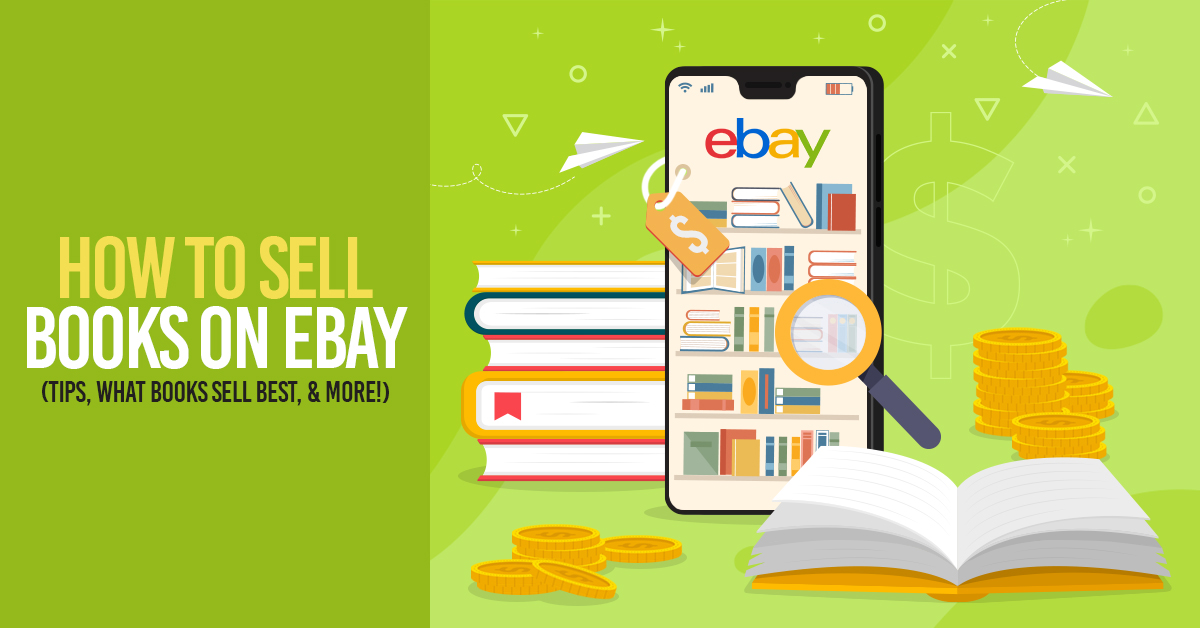Why Decluttering Your Bookshelf Can Be a Lucrative Venture
Decluttering your bookshelf can be a daunting task, but it can also be a lucrative venture. With the growing demand for second-hand books, selling your old books can be a great way to make some extra cash. In fact, the used book market has seen a significant surge in recent years, with many buyers looking for rare and out-of-print titles. By selling your old books, you can not only declutter your bookshelf but also contribute to the sharing of knowledge and reduce waste.
One of the best ways to sell old books is to identify the most valuable titles in your collection. This can be done by researching the book’s rarity, condition, and demand. You can use online marketplaces such as Amazon or eBay to determine the going price for your book. Additionally, you can also consult book pricing guides or visit local used bookstores to get an estimate of your book’s value.
Another benefit of selling old books is that it can be a relatively easy and hassle-free process. With the rise of online marketplaces, you can list your books for sale and reach a wide audience with minimal effort. You can also use social media platforms to promote your books and attract potential buyers.
Furthermore, selling old books can also be a great way to make some extra money for students, book lovers, and collectors. Many students are looking for affordable textbooks and study materials, while book lovers and collectors are always on the lookout for rare and unique titles. By selling your old books, you can tap into this demand and make some extra cash.
In conclusion, decluttering your bookshelf can be a lucrative venture, especially if you have rare or valuable books in your collection. By researching the value of your books, listing them for sale on online marketplaces, and promoting them on social media, you can make some extra cash and contribute to the sharing of knowledge. So, why not start decluttering your bookshelf today and see what hidden gems you can find?
Preparing Your Books for Sale: Tips and Tricks
When it comes to selling old books, presentation is key. A well-prepared book can make a significant difference in attracting potential buyers and securing a sale. In this section, we will provide you with tips and tricks on how to prepare your old books for sale, ensuring that they look their best and appeal to buyers.
First and foremost, it’s essential to clean and dust your books thoroughly. Use a soft-bristled brush or a lint-free cloth to gently remove any dirt, dust, or debris from the covers and pages. Avoid using harsh chemicals or abrasive materials that can damage the book’s surface.
Next, inspect your books for any personal notes or marks. Remove any stickers, stamps, or other attachments that may be present. If you’ve written notes or underlined text, consider using a correction fluid or a eraser to remove them. This will help to maintain the book’s original condition and make it more appealing to buyers.
Another crucial aspect of preparing your books for sale is to ensure that they are properly packaged and protected. Use sturdy boxes or mailers specifically designed for shipping books, and fill any empty spaces with packing materials to prevent the books from moving around during transit.
When listing your books for sale, make sure to include high-quality images that showcase the book’s condition. Take clear and well-lit photos of the cover, spine, and any notable features, such as illustrations or signatures. This will help to build trust with potential buyers and demonstrate the book’s value.
Finally, consider getting your books professionally appraised or graded by a reputable third-party service. This can provide an objective assessment of the book’s condition and value, which can be used to support your asking price and attract serious buyers.
By following these tips and tricks, you can ensure that your old books are properly prepared for sale and presented in the best possible light. This will not only help to attract potential buyers but also increase the chances of securing a sale and getting the best possible price for your books.
How to Determine the Value of Your Old Books
Determining the value of your old books can be a challenging task, but it’s essential to get it right if you want to sell them for a good price. The value of a book is determined by several factors, including its rarity, condition, and demand. In this section, we’ll explore these factors in more detail and provide guidance on how to research and price your books competitively.
Rarity is a significant factor in determining the value of a book. If a book is scarce or hard to find, it’s likely to be more valuable than a book that’s widely available. You can check the rarity of your book by searching online marketplaces, such as Amazon or eBay, and seeing how many copies are available. You can also check the book’s publication history and print run to get an idea of its scarcity.
Condition is another crucial factor in determining the value of a book. A book that’s in good condition, with no damage or wear, is likely to be more valuable than a book that’s damaged or worn. You can check the condition of your book by inspecting it carefully and looking for any signs of damage, such as tears, stains, or broken bindings.
Demand is also an important factor in determining the value of a book. If there’s a high demand for a particular book, it’s likely to be more valuable than a book that’s not in demand. You can check the demand for your book by searching online marketplaces and seeing how many people are looking for it. You can also check the book’s popularity by looking at its sales rankings and reviews.
Once you’ve determined the rarity, condition, and demand for your book, you can start researching its value. You can use online pricing guides, such as Abebooks or Biblio, to get an idea of the book’s value. You can also check the prices of similar books on online marketplaces to get a sense of the going rate.
When pricing your book, it’s essential to be competitive. You don’t want to price your book too high, or you’ll scare off potential buyers. On the other hand, you don’t want to price your book too low, or you’ll lose out on potential profits. You can use online pricing guides and market research to determine a fair and competitive price for your book.
Finally, it’s essential to keep in mind that the value of a book can vary depending on the buyer. Some buyers may be willing to pay more for a book than others, so it’s essential to be flexible and open to negotiations. By doing your research and pricing your book competitively, you can increase your chances of selling it for a good price and getting the best possible return on your investment.
The Best Platforms for Selling Old Books: A Comparison
When it comes to selling old books, choosing the right platform can make all the difference. With so many options available, it can be overwhelming to decide which one to use. In this section, we’ll compare and contrast some of the most popular platforms for selling old books, including Amazon, eBay, Abebooks, and local used bookstores.
Amazon is one of the largest online marketplaces in the world, and it’s a great place to sell old books. With millions of customers and a wide range of categories, Amazon offers a vast potential market for your books. However, Amazon’s fees can be steep, ranging from 8% to 15% of the sale price, depending on the category and the seller’s plan.
eBay is another popular online marketplace that’s well-suited for selling old books. With a large customer base and a wide range of categories, eBay offers a great opportunity to sell your books to a targeted audience. However, eBay’s fees can be high, ranging from 8% to 12.5% of the sale price, depending on the category and the seller’s plan.
Abebooks is a specialized online marketplace that’s dedicated to buying and selling used, rare, and out-of-print books. With a large customer base of book collectors and enthusiasts, Abebooks offers a great opportunity to sell your rare or collectible books. However, Abebooks’ fees can be steep, ranging from 8% to 15% of the sale price, depending on the category and the seller’s plan.
Local used bookstores are another great option for selling old books. These stores often have a loyal customer base of book lovers and collectors, and they may be willing to pay a premium for rare or collectible books. However, local used bookstores may have limited space and may not be able to accept all of your books.
When choosing a platform to sell your old books, it’s essential to consider the fees, target audience, and ease of use. You should also consider the type of books you’re selling and the level of competition on each platform. By choosing the right platform, you can maximize your returns and sell your old books quickly and efficiently.
In addition to the platforms mentioned above, there are many other options available for selling old books, including Facebook Marketplace, Craigslist, and local online selling groups. These platforms can be a great way to reach a targeted audience and sell your books quickly, but be sure to follow safety guidelines and be cautious when dealing with strangers.
Ultimately, the best platform for selling old books will depend on your specific needs and goals. By considering the fees, target audience, and ease of use, you can choose the platform that’s right for you and maximize your returns.
Effective Listing Strategies for Selling Old Books Online
When it comes to selling old books online, creating an effective listing is crucial to attracting potential buyers and closing the sale. A well-written listing can make all the difference in showcasing your book’s value and enticing buyers to make a purchase. In this section, we’ll provide you with tips on how to create an effective listing for your old books online.
First and foremost, it’s essential to write a detailed and accurate description of your book. This should include the title, author, publication date, edition, and condition of the book. Be sure to mention any notable features, such as illustrations, signatures, or dedications. A detailed description will help buyers understand what they’re getting and increase the chances of selling your book.
High-quality images are also crucial to creating an effective listing. Take clear and well-lit photos of the book’s cover, spine, and any notable features. This will give buyers a good idea of the book’s condition and help them make an informed decision. Consider using a tripod or a photo studio to ensure that your images are professional and high-quality.
Setting a competitive price is also essential to creating an effective listing. Research your book’s value using online marketplaces and book pricing guides to determine a fair and competitive price. Keep in mind that pricing your book too high can deter buyers, while pricing it too low can result in a loss. Aim to find a balance between the two and be prepared to negotiate.
Accurate categorization and keyword usage are also crucial to creating an effective listing. Make sure to categorize your book correctly and use relevant keywords in your title and description. This will help buyers find your book when searching for specific titles or genres.
Finally, consider adding a personal touch to your listing. Share your passion for the book and why you’re selling it. This can help build trust with potential buyers and increase the chances of selling your book.
By following these tips, you can create an effective listing that showcases your book’s value and attracts potential buyers. Remember to be patient and persistent, and don’t be afraid to negotiate or adjust your listing as needed.
In addition to these tips, consider using online tools and resources to help you create an effective listing. There are many online platforms and software programs available that can help you optimize your listing and increase your chances of selling your book.
By creating an effective listing and using the right online tools and resources, you can increase your chances of selling your old books online and getting the best possible price. Remember to stay focused, persistent, and patient, and you’ll be well on your way to turning your old books into cash.
Negotiating and Closing the Sale: Tips for Success
Negotiating and closing the sale is a crucial step in selling old books. It requires effective communication, building trust with buyers, and being prepared to handle offers and counteroffers. In this section, we’ll provide you with tips on how to negotiate and close the sale successfully.
Responding to inquiries is the first step in negotiating a sale. When a buyer contacts you, be sure to respond promptly and provide detailed information about the book. This includes the book’s condition, edition, and any notable features. Be honest and transparent in your response, and be prepared to answer any questions the buyer may have.
Handling offers is the next step in negotiating a sale. When a buyer makes an offer, be sure to consider it carefully and respond thoughtfully. If the offer is too low, be prepared to negotiate and provide evidence to support your asking price. If the offer is acceptable, be sure to confirm the sale and provide details on how to proceed.
Closing the sale requires clear communication and a smooth transaction process. Be sure to provide the buyer with clear instructions on how to pay and ship the book. Use a secure payment method, such as PayPal or a credit card, and consider using a shipping service that provides tracking and insurance.
Building trust with buyers is essential to negotiating and closing the sale. Be honest and transparent in your communication, and be prepared to provide evidence to support your claims. Use high-quality images and detailed descriptions to showcase the book’s condition and features. Be responsive to buyer inquiries and provide prompt feedback.
Finally, be prepared to negotiate and be flexible. Selling old books is a competitive market, and buyers may try to negotiate the price. Be prepared to consider offers and counteroffers, and be willing to compromise to close the sale.
By following these tips, you can negotiate and close the sale successfully. Remember to stay calm, be patient, and be prepared to handle any situation that may arise. With effective communication and a smooth transaction process, you can turn your old books into cash and achieve your selling goals.
In addition to these tips, consider using online tools and resources to help you negotiate and close the sale. There are many online platforms and software programs available that can help you manage your sales, track your inventory, and communicate with buyers.
By using these tools and resources, you can streamline your sales process, reduce stress, and increase your chances of success. Remember to stay focused, be persistent, and be patient, and you’ll be well on your way to turning your old books into cash.
Additional Tips for Selling Rare or Collectible Books
Selling rare or collectible books requires a different approach than selling regular used books. These books are often highly sought after by collectors and can command high prices. In this section, we’ll provide you with additional tips on how to sell rare or collectible books, including researching provenance, obtaining appraisals, and targeting specialized buyers.
Researching provenance is essential when selling rare or collectible books. Provenance refers to the book’s ownership history, and it can greatly impact the book’s value. Look for any documentation or evidence that can prove the book’s provenance, such as certificates of authenticity or letters from previous owners.
Obtaining appraisals is also important when selling rare or collectible books. An appraisal can provide an objective assessment of the book’s value and help you determine a fair price. Look for appraisers who are experts in rare books and have experience with similar titles.
Targeting specialized buyers is also crucial when selling rare or collectible books. These buyers are often looking for specific titles or authors, and they may be willing to pay a premium for the right book. Look for online marketplaces, book fairs, and collector communities that cater to rare book collectors.
When selling rare or collectible books, it’s essential to be careful with the handling and presentation. These books are often fragile and require special care to maintain their condition. Use acid-free materials, handle the books with gloves, and store them in a cool, dry place.
The potential for higher returns is one of the main advantages of selling rare or collectible books. These books can command high prices, and the right buyer may be willing to pay a premium for the right title. However, it’s essential to be realistic about the book’s value and to price it competitively.
Finally, consider using online platforms that specialize in rare and collectible books. These platforms often have a large community of collectors and can provide a targeted audience for your book. Look for platforms that offer appraisal services, provenance research, and careful handling and presentation.
By following these tips, you can successfully sell your rare or collectible books and achieve a high return on investment. Remember to be patient, persistent, and careful with the handling and presentation, and you’ll be well on your way to turning your rare books into cash.
Conclusion: Turning Your Old Books into Cash
In conclusion, selling old books can be a lucrative venture that not only declutters your bookshelf but also provides an opportunity to make some extra cash. By following the tips and strategies outlined in this article, you can maximize your returns and turn your old books into cash.
Remember, the key to successful book selling is to present your books in good condition, research their value, and price them competitively. Additionally, choosing the right platform for selling your books, creating effective listings, and negotiating with potential buyers are all crucial steps in the process.
Whether you’re looking to declutter your bookshelf, make some extra cash, or share your knowledge with others, selling old books can be a rewarding experience. So, why not start today? Gather your old books, follow the tips outlined in this article, and turn your old books into cash.
By selling your old books, you’ll not only be making some extra cash, but you’ll also be contributing to the sharing of knowledge and the preservation of literature. So, don’t let your old books collect dust on your bookshelf. Turn them into cash and start enjoying the benefits of selling old books today.
In summary, selling old books is a great way to declutter your bookshelf, make some extra cash, and share your knowledge with others. By following the tips and strategies outlined in this article, you can maximize your returns and turn your old books into cash. So, start selling your old books today and enjoy the benefits of this lucrative venture.






:max_bytes(150000):strip_icc()/how-to-sell-used-books-for-the-most-cash-1388970-01-7815a93d4c95431999e1b5192ece1699.jpg)